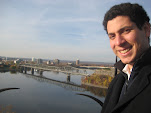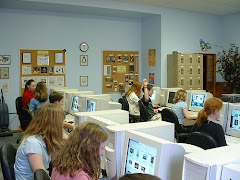Saturday, 20 March 2010
Subscribe to:
Comments (Atom)
WELCOME! This instructional Module is part of the Course: ECI 834 397 (The Nature of Online Education)2008 Spring/Summer. Our purpose is to address the learning needs with respect to designing, developing and delivering teaching in an online environment.















According to Zukav the development of authentic power requires choosing harmony over discord, cooperation over competitions, sharing over hoarding, and revering life instead of exploiting it. This means for education in the 21st century that educating pupils means to “dance” with them. As in ‘dancing with the stars” TV program, the teacher, the expert in dancing, enjoys with the learner all the steps and skills to be able to make the learner dance in his/her “own way,” which is Wu Li that comes “alive” with “patterns of organic energy”, displaying imagination, creativity and enjoying what s/he is doing. In this sense, exploration of the physical world is “the development of external power—the ability to manipulate and control.” Similarly, “dancing with an on line student” means that I should be providing opportunities to the student for learning, enjoying new skills through the exploration of “the physical world into perception that is not limited to the five senses and evolution through the alignment of the personality with the soul.” It is a more intelligent, humours and coherent way of learning and it can be developed into a permanent way of life.
We agree with Zukav that, “the alignment of the personality with the soul is the creation of authentic power.” It is accomplished through responsible choice with the assistance and guidance of non-physical guides and Teachers. “The soul seeks harmony, cooperation, sharing, and reverence for Life. Choosing these things aligns your personality with your soul, and creates authentic power.” As you make these choices again and again, those parts of yourself that are in opposition to your health begin to lose power over you, and you begin to gain power over them. Eventually, they disintegrate.” In this sense, holding a learning-centered perspective in which the student can feel that s/he is going in his/her own way, learning in his/her own pace, is really the best way to define online education. In this sense, instructional designers can incorporate the Zukav “new” paradigm into web-based instructional models and approaches by offering opportunities for creativity, imagination, cooperation, sharing, harmony, humour and enjoinment of life.